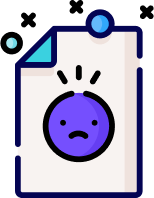We use cookies to make our site work properly and to give you the best browsing experience. Some cookies are essential, while others help us improve your experience by providing insights into how the site is being used. You can choose to accept this option below.
What you will learn
-
Introduces the principles of humanitarian action and social development.
-
Provides practical knowledge of NGO management and fundraising techniques.
-
Examines humanitarian logistics, disaster response, and crisis management.
-
Explores global humanitarian frameworks, ethics, and international law.
-
Covers community empowerment, participatory development, and inclusion strategies.
-
Addresses ethical challenges, cultural sensitivity, and peacebuilding.
Diploma in Humanitarian Studies and Social Development
Course Overview
The Diploma in Humanitarian Studies and Social Development (PanafDip.) is a professional training program designed to equip learners with the knowledge, practical skills, and ethical frameworks required to work effectively in humanitarian aid, social development, and community empowerment initiatives.
Rooted in African realities but aligned with global standards, the program covers the theories, practices, tools, and innovations shaping humanitarian and development work today. Learners are guided through the full cycle of development programming—from needs assessment to project design, implementation, evaluation, policy advocacy, governance, and humanitarian action.
Upon completion, graduates are awarded the prestigious PanafDip. designation, recognizing them as competent professionals ready to contribute to sustainable, accountable, and people-centered development practices across Africa and beyond.
Program Objectives
By the end of the course, learners will be able to:
Understand the principles and frameworks of humanitarian studies and development practice.
Apply practical tools such as logframes, M&E matrices, capacity-building frameworks, and sustainability checklists.
Design and manage effective humanitarian and social development programs.
Engage in advocacy and policy dialogue to influence governance and social change.
Promote accountability, ethics, and transparency in humanitarian and development work.
Anticipate trends and embrace innovation in development practice.
Target Audience
• Development practitioners
• NGO staff and volunteers
• Humanitarian aid workers
• Social entrepreneurs
• Policy makers and advocates
• Students and graduates aspiring to work in international development or humanitarian fields
Course Modules
Module 1: Foundations of Humanitarian Studies and Social Development
• Theories, concepts, and frameworks.
Module 2: International Development Frameworks
• SDGs, international charters, and global governance.
Module 3: Social Development Approaches
• Rights-based, participatory, and sustainable models.
Module 4: Humanitarian Principles and Practice
• Ethics, neutrality, impartiality, and humanitarian law.
Module 5: Gender, Equity, and Inclusion in Development
• Mainstreaming equity and social justice.
Module 6: Community Development Approaches
• Participatory methods, local ownership, empowerment.
Module 7: Program Design, Implementation, and Evaluation
• PCM, M&E frameworks, sustainability tools.
Module 8: Resource Mobilization and Partnership Development
• Fundraising, donor relations, NGO–government partnerships.
Module 9: Capacity Building and Training for Development Practitioners
• Training needs analysis, facilitation, and evaluation.
Module 10: Advocacy, Policy Engagement, and Governance
• Rights-based advocacy, influencing policy change.
Module 11: Contemporary Issues and the Future of Development
• Humanitarian action, global trends, innovation in practice.
Assessment and Certification
• Continuous Assessment: Assignments, case studies, reflections.
• Final Examination: Multiple-choice and applied project tasks.
• Capstone Project: Application of program design, advocacy, or humanitarian response.
Learners who successfully complete all requirements will be awarded:
🎓 Diploma in Humanitarian Studies and Social Development (PanafDip.)
Professional Recognition
Graduates are entitled to use the post-nominal title "PanafDip." after their names.
Example:
• Jane Doe, PanafDip.
• Ahmed Musa, PanafDip.
This title reflects professional competency, ethical standards, and academic achievement in humanitarian and social development practice.
Career Opportunities
Graduates of the program can pursue roles such as:
• Humanitarian program officer
• Development project manager
• Community mobilizer
• Policy and advocacy officer
• Monitoring and evaluation specialist
• Social development consultant
✨ Empowering Development Leaders for Africa and Beyond.

No Discussion Found
0.0
0 Reviews
Meet Your Instructor
About Instructor
Dr. Jerry Audu is a UN-certified Humanitarian Expert with extensive experience in humanitarian aid, social development, and community resilience. He has worked across multiple regions providing technical guidance, capacity building, and policy support for international development projects.

₦ 10.00 ₦ 30.00
66.67 % off
-
Course Duration0
-
Course LevelMedium
-
Student Enrolled3
-
LanguageEnglish
This Course Includes
- 0 Video Lectures
- 0 Quizzes
- 0 Assignments
- 0 Downloadable Resources
- 120 days after the enrollment
- Certificate of Completion

